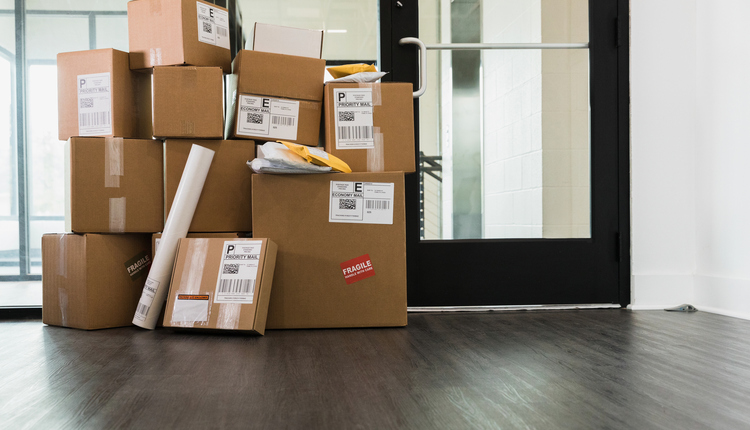E-commerce is on the rise as peak season officially kicks off. With package deliveries increasing, the number of risks associated with shipping are increasing, too. Merchants are becoming acutely more aware of the shipping mishaps that threaten today’s delivery experience. This includes everything from traditional hiccups, like lost or damaged deliveries, to emerging threats such as porch piracy, climate change, and drop-shipping.
UPS Capital’s recently published Annual State of Shipping Report shows that 61% of shoppers say they will stop buying from an SMB after two or three delivery issues. Shipping incidents damage not only a merchant’s reputation but also their bottom line. That’s why it’s necessary to understand thoroughly the top threats this peak season and take preemptive measures to help offset these risks.
Porch pirates are snatching packages from porches
Porch piracy occurs when deliveries are stolen from doorsteps after delivery—a threat that’s predicted to significantly increase during the holiday season. According to a study conducted by Safewise, around 210 million packages disappeared from US porches in 2021.
Small businesses already feel the pain from porch piracy as they’re forced to take on the costs of replacing and reshipping stolen merchandise. In the same study referenced above by UPS Capital, results show that 74% of retailers have adjusted their budget due to porch piracy and feel it’s the biggest risk impacting their profitability this peak season.
In today’s landscape, small businesses should take porch piracy as serious as a shoplifter in brick-and-mortar stores, especially considering that almost a third of merchants reported financial losses of more than $50,000 due to porch piracy in the last year.
Climate as an emerging risk
Small businesses are facing the heat of climate change through the threats associated with raging wildfires, hurricanes, severe winter storms, and so on. Extreme and unpredictable weather events have proven to be an increasing risk to the shipping experience. In fact, UPS Capital’s data shows that three out of four merchants shipping products to customers experienced an increase in damages, expirations, and losses in transit due to extreme weather events over the last year.
Additionally, nearly all merchants anticipate an increase in shipping and delivery issues due to climate change over the next five years, and 77% of shoppers now believe that extra steps are needed to protect their orders from weather issues. This shows just how important it is for merchants to invest in safeguards that can protect shipments from the effects of climate change and the costs associated with replacements for damaged or spoiled goods.
What about drop-shipping?
Drop-shipping is considered a cost-effective strategy that doesn’t require the merchant to keep product stock on-hand and instead, allows for orders to be shipped directly from the supplier to the customer. Earlier this year, a UPS Capital survey, Personalized Shipping Experiences: The Next Frontier for eCommerce, reported that 86% of SMBs report either a significant or slight increase in use of drop-shipping since the pandemic began in 2020.
However, without a hands-on approach to fulfillment and delivery, SMBs can face criticism in the event their product and delivery displeases the customer. While drop-shipping has helped SMBs meet customer needs cost effectively, it can also increase shipping risk as SMBs do not have visibility on the inventory, packaging materials and mode of transportation before it goes directly to the consumer. The same report found that 66% of SMBs have seen an increase in damages from drop-shipping, as compared to shipments coming directly from their business.
Mitigating peak season threats
Supply chains are in a volatile place right now as the holiday season approaches, reaffirming the need for small businesses to take precautions to stay ahead of the growing risk and exposures surrounding porch piracy, climate change and drop-shipping.
It’s important for SMBs to take stock of their own risks and ensure a trusted process with carriers and partners is in place to support a positive customer delivery experience. Additionally, merchants should consider shipping insurance as an option to protect their bottom line and reputation.
Eduardo Lopez-Soriano is Vice President of Marketing at UPS Capital.







